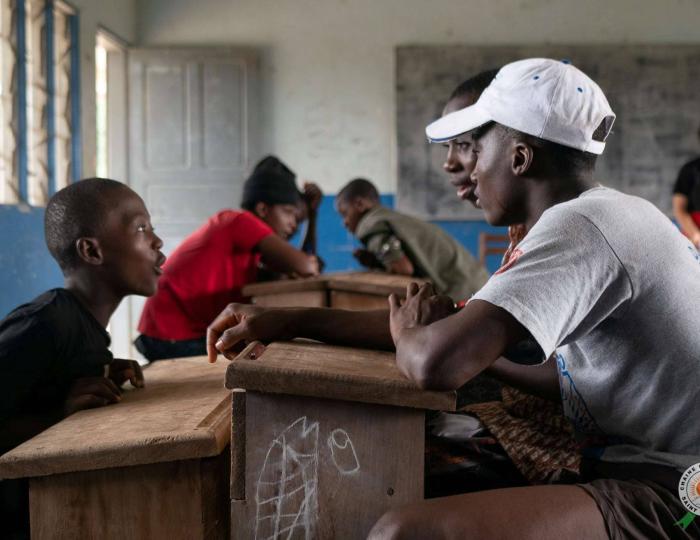

Similar to many Central African countries, the issue of children in street situations in Cameroon is a matter of concern. Due to limited resources, the care for these young individuals is often considered inadequate by civil society organizations, particularly in light of the harsh conditions and mistreatment they face. To help safeguard them and advocate for their rights, our partner, the Chaîne des Foyers de Saint-Nicodème (CFSN), has implemented several initiatives aimed at welcoming and reintegrating Cameroonian youth.
The Challenge of Incarcerated Minors
One of these initiatives is focused on supporting the PK24 agricultural centre, a facility that provides socio-professional and family reintegration services for young people transitioning from life on the streets or from incarceration in Douala's prisons. Many of these young individuals are apprehended by law enforcement for minor offences such as violence, drug-related issues, vandalism, or sometimes simply for vagrancy. Alcohol and drug use is a recurring problem among these youth, often employed as a coping mechanism to deal with the violence and trauma they have experienced.
Due to court backlogs, young people are frequently held in preventive detention, spending several months in correctional facilities before receiving a trial. Prison overcrowding exposes them to various challenges, including violence and inadequate nutrition. Moreover, the majority of the infrastructure in Douala's prison facilities is ill-suited, leaving detainees exposed to rain and cold. This situation has raised concerns for our local partner.
A tailored response
In response to this issue, CFSN has established an open educational action service that engages with young individuals inside the prisons. Twice a week, professionals from the association visit the facilities to provide a range of support services to these children. These services include educational assistance, medical check-ups, awareness sessions, as well as access to hygiene products and clothing. The primary objective is to ensure the protection of their rights and to work towards their family reintegration with the goal of eventual release from prison, even though maintaining contact between these youth and their parents can be challenging. In cases where this is not feasible, the PK24 centre can provide accommodation to facilitate their socio-professional reintegration.
The PK24 Agricultural Centre
Currently, the PK24 stabilization centre houses approximately thirty young individuals in the process of reintegration. This group consists mainly of children who have lived on the streets of Douala or young people who have fled the northern regions of the country due to conflicts. These youth are provided with accommodation, meals, education, or vocational training within the Nyllon-Brazzaville centre, which is an integral part of the project. They also receive additional educational support within the centre. The objective is to empower them to engage in various agro-pastoral activities on the farm, including fish farming, pig farming, poultry farming, vegetable cultivation, banana farming, and palm tree cultivation.
The project also incorporates a socio-educational component, featuring pedagogical discussions covering various topics such as hygiene, physical health, and sexual health. Additionally, the young individuals participate in a range of recreational activities, including games and sports. Although only a few decide to pursue vocational training in agriculture, primarily due to economic viability considerations, most feel that they have gained valuable skills during their stay at the centre. Consequently, they develop a strong sense of discipline, teamwork, and environmental responsibility.
The PK24 centre project is also a part of our new ADAC program, a comprehensive initiative that consolidates our various efforts dedicated to children in street situations in Central Africa. We look forward to continuing our support for our partners in their on-the-ground activities, working towards the protection of youth and the promotion of their rights.
